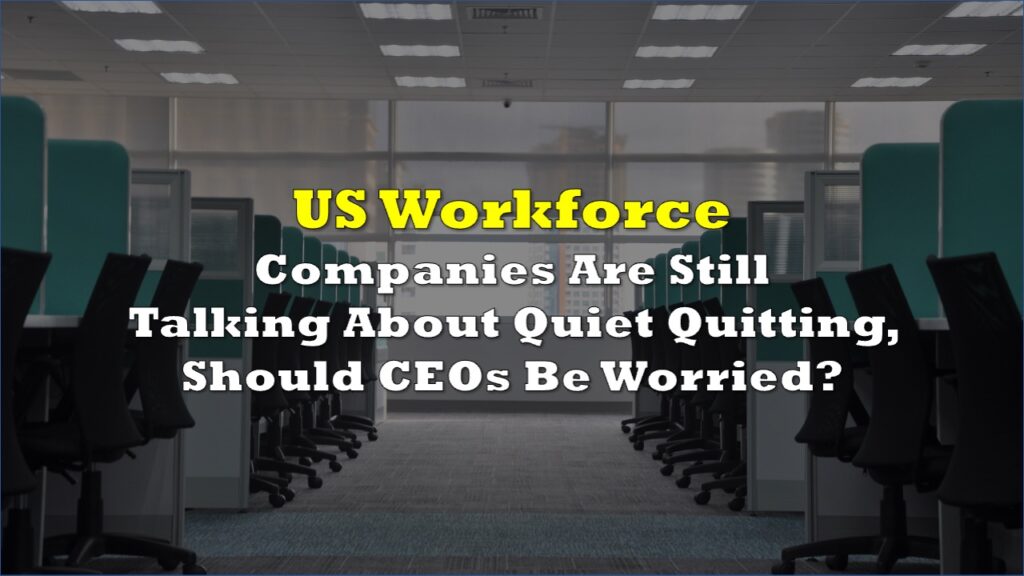A new study by global analytics company Gallup found that at least 50% of the US workforce, maybe more, are “quiet quitting.” The firm defines this cohort of workers as “people who do the minimum required and are psychologically detached from their job.”
The trend, or more accurately, the mindset, has been gaining wider attention since the workforce started to emerge from the pandemic, the two-year period that supposedly upended how people see and do work.
Of the 15,091 full- and part-time US employees aged 18 and over that Gallup surveyed in June, the proportion of engaged workers remained at 32%, while the proportion of actively disengaged — a.k.a. the loud quitters — went up to 18%, bringing the ratio of engaged versus actively disengaged to 1.8 to 1, the lowest in almost 10 years, according to Gallup.

This drop began in the second half of 2021, the same time as the rise in resignations. The study shows that managers experienced the biggest drop.
The decline underlines a disconnect between employees and their employers. They found that it was driven by concerns related to “clarity of expectations, opportunities to learn and grow, feeling cared about, and a connection to the organization’s mission or purpose.”
Gallup found that among the age groups, it was the younger millennials and Gen Z that registered a substantial drop in engagement and employer satisfaction. According to the study, younger workers have felt less cared about and have seen fewer opportunities to develop since the pandemic. Alarmingly, less than 40% of those who are not in the office full-time fully know or understand what is expected of them at work.
The firm points out that “quiet quitting is a symptom of poor management” and suggests that to manage the problem, senior leadership must first address manager engagement. At the time of the survey, only one in three managers are engaged at work.
Information for this briefing was found via Gallup. The author has no securities or affiliations related to this organization. Not a recommendation to buy or sell. Always do additional research and consult a professional before purchasing a security. The author holds no licenses.





